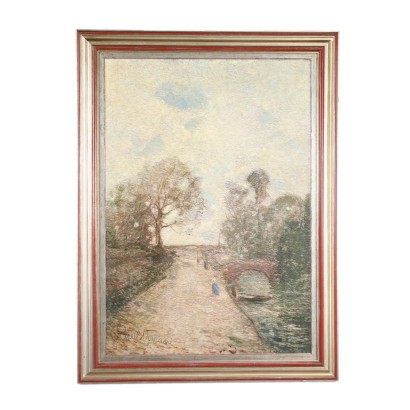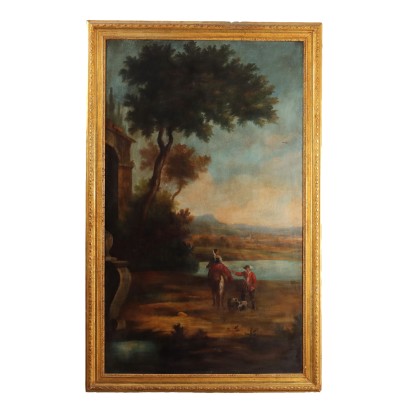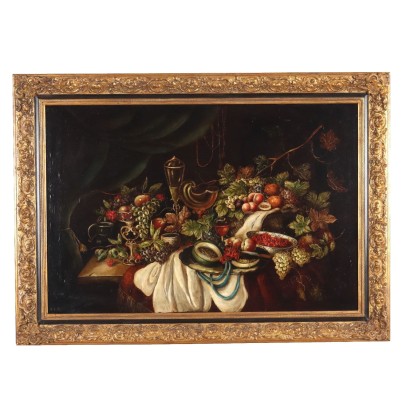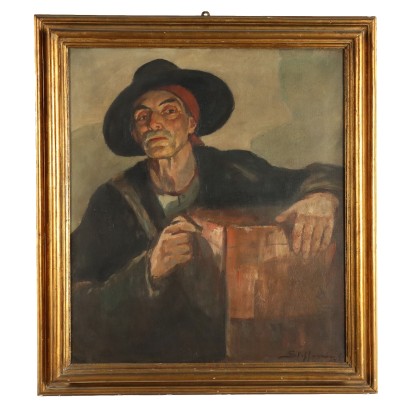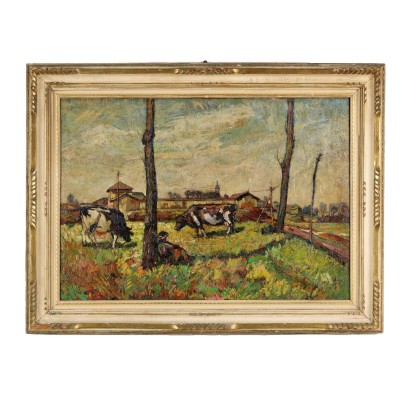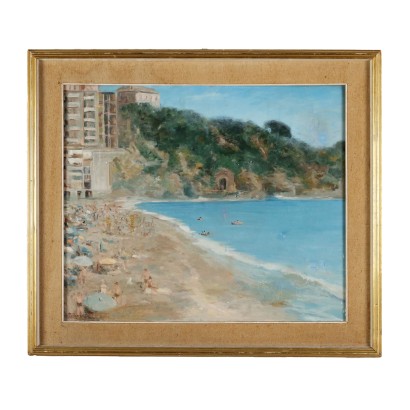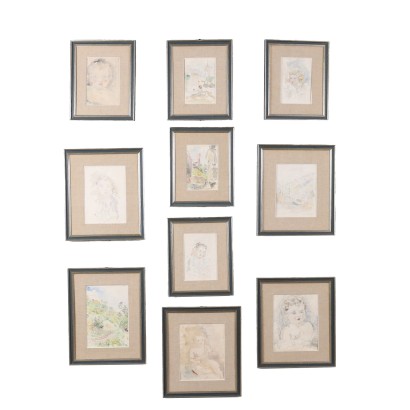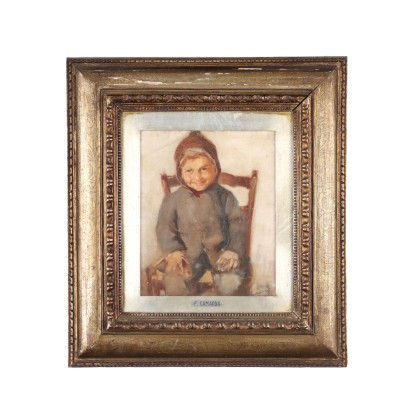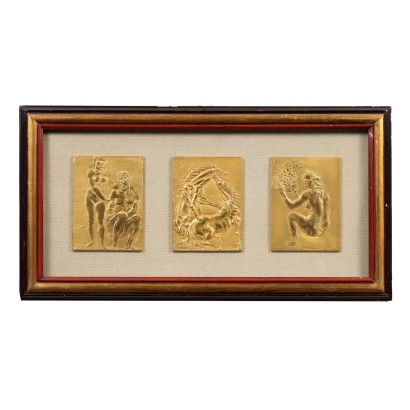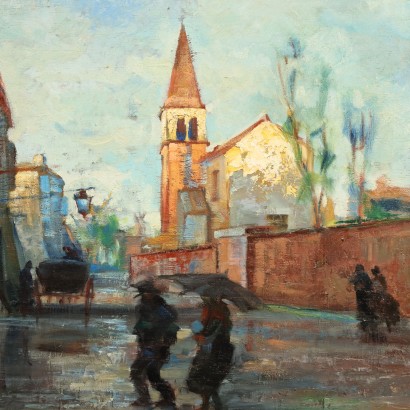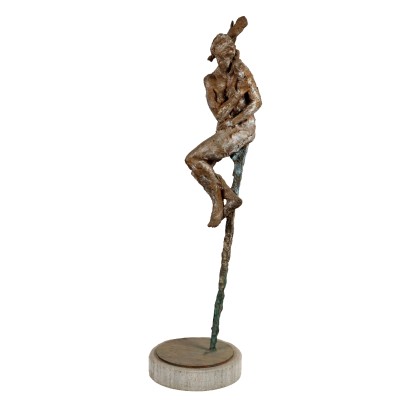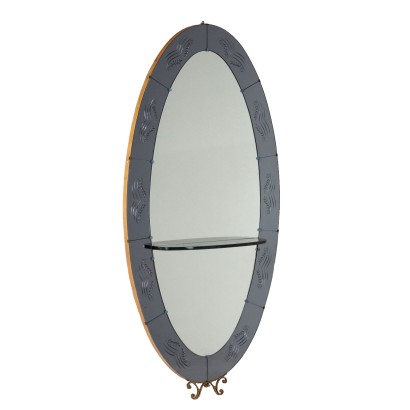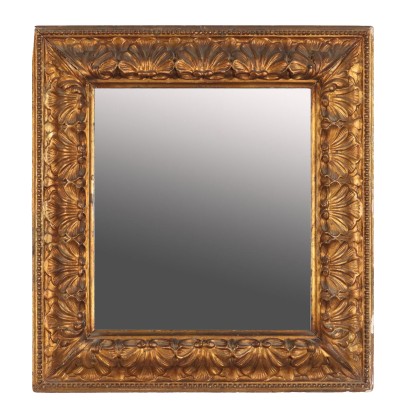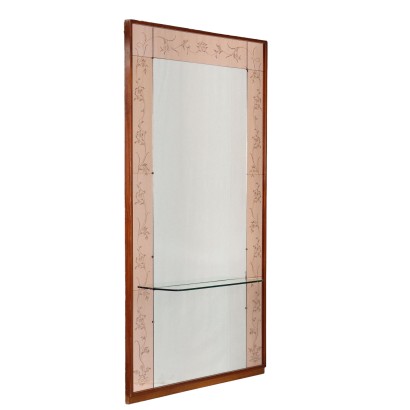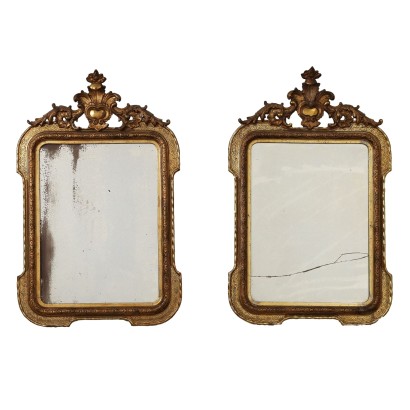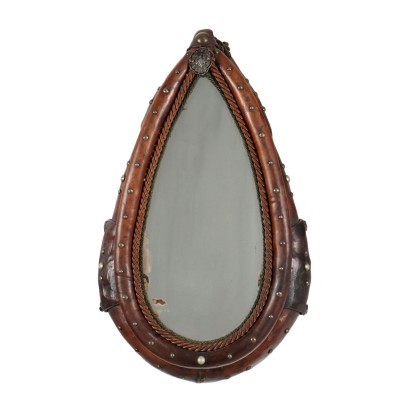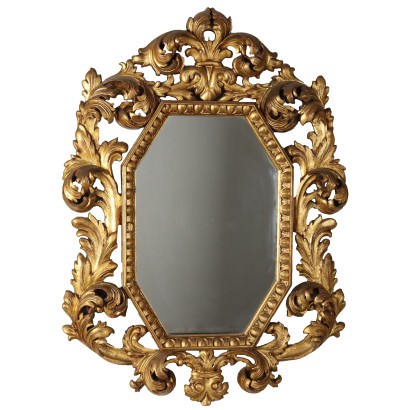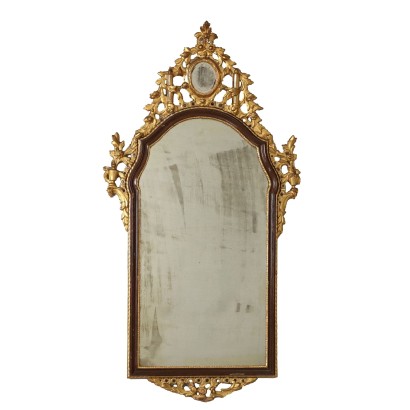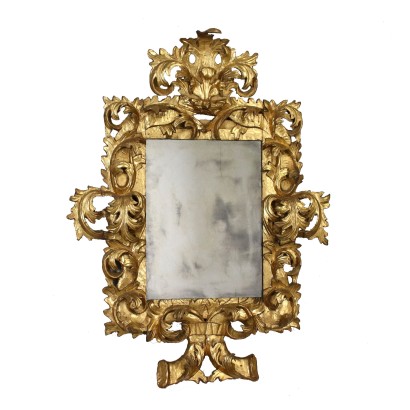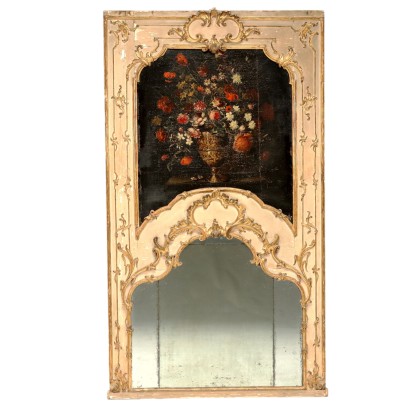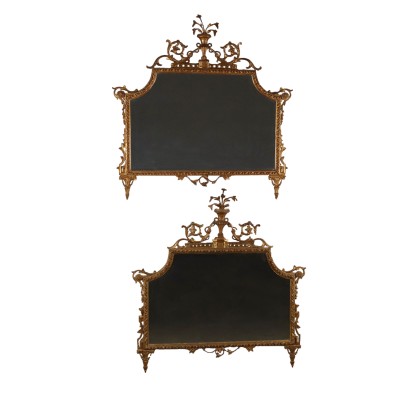Raoul Viviani Landscape with Figures Italy XX Century - The Country Road
Features
The Country Road
Artist: Raul Viviani (1883-1965)
Artwork title: La strada di campagna
Age: 20th Century / 1901 - 2000
Subject: Landscape with Figures
Origin: Italy
Artistic technique: Painting
Technical specification: Oil on Hardboard
Description : La strada di campagna
Oil on hardboard. Signed lower left. Having moved as a child with his family to Milan in 1898, still very young, Raoul Viviani enrolled at the Brera Academy, where he studied under the guidance of Giuseppe Mentessi (1857-1931). At the same time he attended the nude school of the Artistic Family, with which he exhibited for the first time at the age of 17, immediately enjoying great success with the public and critics, as a landscape painter with a strong personality and modernity and for his highly original style characterized from strong chromatic experiments. In 1912 he participated in the Venice Biennale and subsequently participated in numerous national and international exhibitions. From 1926 he began his career in the field of art criticism, writing for various newspapers, but his opposition to fascism led him to choose voluntary exile: in 1931 he moved to Uruguay, where he founded and directed the Academy of Montevideo Fine Arts. Returning to Milan in 1937, he resumed his activity as a painter and as a critic. In the 1950s he moved to Rapallo for health reasons and remained there until his death. Extremely original landscape painter, who engages in oil painting but also in watercolor and engraving, is very close to pointillist painting, however, developing his own personal technique, characterized by very thin filaments of color in the form of thin commas, which define the structures of the its landscapes. With his transfer to Liguria, the Ligurian landscape becomes the protagonist of his works and also his mute technique, moving away from the original pointillism to open up to a broad and summary brushstroke, which finally leads to a production of still lifes from violent and contrasting colors. In this work in which the technical characteristic of Viviani is well appreciated, along the country path that runs along the canal, a figure of a woman appears, which constitutes an exception in his production, usually lacking in figurative elements. Work in frame.
Product Condition:
Product in very good condition which may show slight traces of wear; it may have undergone restoration work carried out by an expert.
Frame Size (cm):
Height: 119
Width: 89
Depth: 4
Artwork dimensions (cm):
Height: 100
Width: 70
Additional Information
Artist: Raul Viviani (1883-1965)
Nasce a Firenze,in via Borgognissanti, il 29 novembre 1883. Temperamento precoce esordì nelle pubbliche mostre a soli diciassette anni, nel 1900, all'esposizione della Famiglia Artistica con dipinti molto personali che gli aprirono presto le porte delle maggiori rassegne e che gli procurarono la viva attenzione dei più noti critici, Ugo Monneret, sulla Perseveranza, Carlo Bozzi sul Secolo, Alfredo Melani su importanti periodici che esaltarono le sue audacie pittoriche per far stizzire i pavidi e i tentennanti. Alla rassegna della Famiglia Artistica (1902/03) fu presente con dipinti originali e molto spinti nei ritmi e nel procedimento tecnico che il Centelli, critico del Corriere della Sera, le definì "stramberie del Viviani" che piacquero a Vittore Grubicy, Arturo Toscanini, Leonardo Bistolfi, Clemente Pugliese Levi. Alla mostra mondiale del 1906 a Milano per il traforo del Sempione presenta un quadro, saturo di intima poesia e pur esso originalissimo nella composizione e nella esecuzione "Nasce la Luna" madreperlaceo e vibrante notturno Ettore Tito (volle fosse esposto vicino a Pellizza da Volpedo nella sala più significativa della rassegna (anno 1906) Vittorio Pica (iniziò a stimarlo e segnalarlo fra i migliori e più interessanti giovani, scrivendo di lui su Gazzette e pubblicazioni). Alla Quadriennale di Monaco svoltasi nel 1913 al "Palazzo di Cristallo" il suo suggestivo dipinto "Poesia" fu subito acquistato per una importante collezione. Nello stesso anno la "Società Nazionale Dante Alighieri" alla mostra di Rimini allestì una sala viviani ed in tale occasione gli venne assegnata la grande medaglia del Ministero della Pubblica Istruzione. Viene nominato, nel 1914, Commissario Artistico del Comune di Milano, incarico che mantiene fino al 1922. Le sue partecipazioni alle più notevoli esposizioni artistiche seguirono ininterrotte sino al 1931, anno nel quale fu chiamato dalla Presidenza del Governo Uruguaiano per istituire a Montevideo un'Accademia di pittura che diresse per sei anni. Torna in Italia , per motivi familiari nel 1937, e subito, Alfredo D'Agostino offerse le sue sale della Casa degli Artisti per una esposizione che ebbe recensioni lusinghiere di Giovanni Mussio, Guido Marangoni, Carlo Carrà, Vincenzo Bucci, Dino Bonardi. Riprese la sua attività esponendo in numerose mostre nelle diverse città. In particolare si ricorda, l'esposizione al Centro d'arte S.Babila, nel 1952, per i 50 anni di attività artistica, recensita in modo lusinghiero da Leonardo Borghese. Scrittore e oratore successe a Vittorio Pica, nel 1926, come critico del "Roma" e del "Mezzogiorno" di Napoli. Diresse dal 1929 al 1931, il giornale milanese "Il giornale dell'Arte" e fu critico d'arte sul Giornale degli Artisti, sul Giornale dell'Arte, sul Corriere degli Artisti, sul Nuovo Corriere degli Artisti, sull'Araldo dell'Arte. Era anche disegnatore e acquafortista. Nel 1947 presentò il 1° Convegno Nazionale del Nuovo Romanticismo, indetto dal Movimento neoromantico sotto l'egida del gruppo "Paese Libero". Morì, nel 1965, a Rapallo e nel 1966, il Comune di Milano organizzò, alla Rotonda della Besana, una mostra postuma.Age: 20th Century / 1901 - 2000
20th Century / 1901 - 2000Subject: Landscape with Figures
Artistic technique: Painting
La pittura è l'arte che consiste nell'applicare dei pigmenti a un supporto come la carta, la tela, la seta, la ceramica, il legno, il vetro o un muro. Essendo i pigmenti essenzialmente solidi, è necessario utilizzare un legante, che li porti a uno stadio liquido, più fluido o più denso, e un collante, che permetta l'adesione duratura al supporto. Chi dipinge è detto pittore o pittrice. Il risultato è un'immagine che, a seconda delle intenzioni dell'autore, esprime la sua percezione del mondo o una libera associazione di forme o un qualsiasi altro significato, a seconda della sua creatività, del suo gusto estetico e di quello della società di cui fa parte.Technical specification: Oil on Hardboard
Other customers have searched:
Arte Novecento, dipinti del 900, olio su tavola, pittura olio su tela, arte 800, pittura antica, arte contemporanea, quadro del '900, quadro grande, quadro olio su tela..
Se sei un appassionato d'arte, non perderti i nostri approfondimenti sul Blog Arte Di Mano in Mano e su FineArt by Di Mano in Mano - Arte:
Leggi di più
Ecco alcuni tra i principali articoli:
Vedute
Falsi nell'arte antica
Un messaggio di fiducia per ripartire
La potenza espressiva dell'arte figurativa etiope
Breve Storia del Collezionismo
Giorgio Upiglio, maestro dei libri d'artista
Matthias Withoos detto "Calzetta bianca"
San Rocco pensaci tu - Classic Monday
Ecco alcuni esempi dell'arte del Novecento più bella che puoi trovare da noi:
I Raccoglitori di patate - Lavoro estivo - Augusto Colombo, 1935
I Taglialegna - Lavoro invernale - Augusto Colombo, 1933
Il lavoro femminile, Contardo Barbieri, 1954 ca.
Sapevi che l'arte può essere anche un ottimo investimento (e non solo per grandi portafogli)?
L'Arte tra Collezionismo e Investimento
FineArt: Arte come investimento
Dai un'occhiata alle nostre rubriche di divulgazione sull'arte:
Epoche
Lavorazioni e tecniche
Mostre ed Eventi
Protagonisti
Leggi di più
Ecco alcuni tra i principali articoli:Vedute
Falsi nell'arte antica
Un messaggio di fiducia per ripartire
La potenza espressiva dell'arte figurativa etiope
Breve Storia del Collezionismo
Giorgio Upiglio, maestro dei libri d'artista
Matthias Withoos detto "Calzetta bianca"
San Rocco pensaci tu - Classic Monday
Ecco alcuni esempi dell'arte del Novecento più bella che puoi trovare da noi:
I Raccoglitori di patate - Lavoro estivo - Augusto Colombo, 1935
I Taglialegna - Lavoro invernale - Augusto Colombo, 1933
Il lavoro femminile, Contardo Barbieri, 1954 ca.
Sapevi che l'arte può essere anche un ottimo investimento (e non solo per grandi portafogli)?
L'Arte tra Collezionismo e Investimento
FineArt: Arte come investimento
Dai un'occhiata alle nostre rubriche di divulgazione sull'arte:
Epoche
Lavorazioni e tecniche
Mostre ed Eventi
Protagonisti
Product availability
The product can be seen at Milan
Disponibilità immediata
Pronto per la consegna in 2 giorni lavorativi dalla conferma dell'ordine del prodotto.
Consegna tra i 7 e i 15 giorni in tutta Italia. Per le isole e le zone difficilmente raggiungibili i tempi di consegna possono variare.



